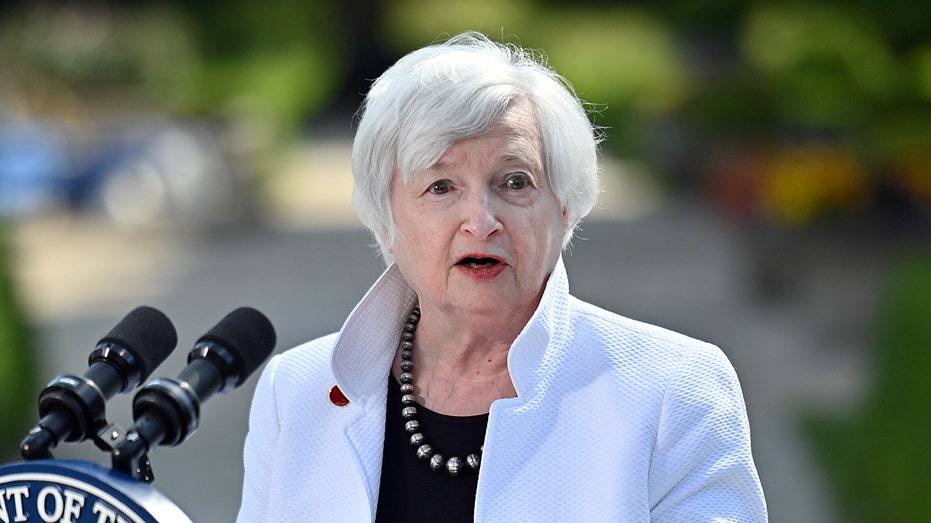Yellen says Treasury prepared to deploy extraordinary debt limit measures as July deadline looms
Democrats are 'considering all options' regarding the looming debt ceiling deadline
US will pay price for Biden, Yellen 'globalist tax scheme': Crowley
Former Treasury Department spokesperson Monica Crowley on the Biden administration and Treasury Secretary Janet Yellen pushing a global minimum tax rate.
Treasury Secretary Janet Yellen said Tuesday that she's prepared to inform Congress she will immediately deploy "extraordinary measures" to avoid violating the government debt limit as lawmakers hurtle toward the July debt deadline.
During an interview with Reuters, Yellen said the Treasury is poised to end July with a cash balance of roughly $450 billion, well below the previous week's level of $718 billion.
"If Congress doesn't act, I will send a letter indicating my intention to invoke (extraordinary measures)," Yellen said. "I'll provide more details about how long I think emergency powers would last. There's a lot of uncertainty around it and I think we have to be careful."
The debt ceiling, which is currently around $22 trillion, is the legal limit on the total amount of debt that the federal government can accrue; according to the Committee for a Responsible Federal Budget, it applies to both the $16.2 trillion held by the public, and the $5.9 trillion owed by the government.
In 2019, former President Donald Trump suspended the nation's borrowing limit for two years, but that suspension is poised to expire on July 31, and Democrats seemingly do not have a plan yet to raise the limit or suspend it again.
"We’re considering all options," House Speaker Nancy Pelosi recently told Bloomberg News recently.

U.S. Treasury Secretary Janet Yellen speaks during a news conference, after attending the G7 finance ministers meeting, at Winfield House in London, Britain June 5, 2021. Justin Tallis/Pool via REUTERS/File Photo (Justin Tallis/Pool via REUTERS / Reuters Photos)
If Congress is unable to increase the debt limit, the Treasury would enter uncharted territory, incapable of paying bills – including payments to Social Security beneficiaries, government employees or service members – since it would have no cash on hand. The Treasury Department would be unable to issue any more bills or bonds and would instead have to rely on tax revenue and emergency accounts to pay the bill.
Other "extraordinary measures" the Treasury would take range from halting issuance of special securities to state and local governments to suspending the daily reinvestment of Treasury securities held by a government employee retirement fund and the Treasury's Exchange Stabilization Fund, Reuters reported.
GET FOX BUSINESS ON THE GO BY CLICKING HERE
Eventually, the federal government would have to temporarily default on some of its obligations, which could have serious and negative economic implications. Interest rates would likely spike, and demand for Treasuries would drop; even the threat of a default can cause borrowing costs to increase.
The U.S. has never defaulted on its debt before, but came close in 2011, when House Republicans refused to pass a debt ceiling increase, prompting rating agency Standard and Poor's to downgrade the U.S. debt rating one notch.





















